
Ofu Beach: A Pristine Paradise in American Samoa
Ofu Beach in American Samoa is a hidden gem that offers an untouched tropical paradise for those looking to escape the hustle and bustle of everyday life. With its white sandy shores, crystal-clear waters, and vibrant coral reefs, Ofu Beach provides an idyllic setting for relaxation and adventure alike. The beach is part of the National Park of American Samoa, which means it is protected and preserved in its natural state. This makes it a perfect spot for snorkeling and diving, as the marine life is abundant and the reefs are spectacularly colorful. You might even spot green sea turtles and a variety of tropical fish as you explore the underwater world. In addition to its natural beauty, Ofu Beach is also rich in cultural heritage. The local village of Ofu offers a glimpse into the traditional Samoan way of life, with opportunities to learn about their customs, crafts, and cuisine. Whether you're lounging on the beach, hiking through lush forests, or engaging with the local culture, Ofu Beach promises an unforgettable experience in one of the most beautiful and unspoiled locations on Earth.
Local tips in Ofu Beach
- Bring snorkeling gear to explore the vibrant coral reefs and marine life.
- Visit during the dry season from May to October for the best weather.
- Respect the local customs and traditions when interacting with the village community.
- Wear reef-safe sunscreen to help protect the delicate marine ecosystem.
- Stock up on supplies before arriving as amenities on the island are limited.
Ofu Beach: A Pristine Paradise in American Samoa
Ofu Beach in American Samoa is a hidden gem that offers an untouched tropical paradise for those looking to escape the hustle and bustle of everyday life. With its white sandy shores, crystal-clear waters, and vibrant coral reefs, Ofu Beach provides an idyllic setting for relaxation and adventure alike. The beach is part of the National Park of American Samoa, which means it is protected and preserved in its natural state. This makes it a perfect spot for snorkeling and diving, as the marine life is abundant and the reefs are spectacularly colorful. You might even spot green sea turtles and a variety of tropical fish as you explore the underwater world. In addition to its natural beauty, Ofu Beach is also rich in cultural heritage. The local village of Ofu offers a glimpse into the traditional Samoan way of life, with opportunities to learn about their customs, crafts, and cuisine. Whether you're lounging on the beach, hiking through lush forests, or engaging with the local culture, Ofu Beach promises an unforgettable experience in one of the most beautiful and unspoiled locations on Earth.
When is the best time to go to Ofu Beach?
Unmissable attractions to see
Vai'ava Strait National Natural Landmark
Discover dramatic volcanic cliffs, nesting seabirds, and stunning Pacific views at this American Samoa natural landmark.
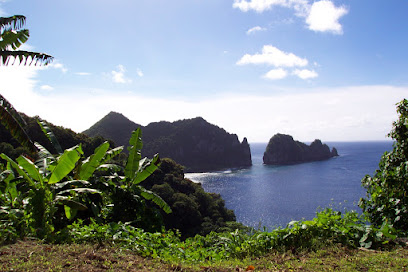
Big Momma
Discover the serene beauty and ecological wonders of Big Momma in Manu'a District, a tranquil paradise for nature lovers and explorers.
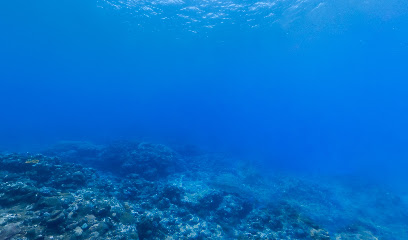
Pola Island Viewpoint
Experience breathtaking panoramic views of Pola Island and the stunning Vai'ava Strait from this tranquil viewpoint in Vatia, American Samoa.
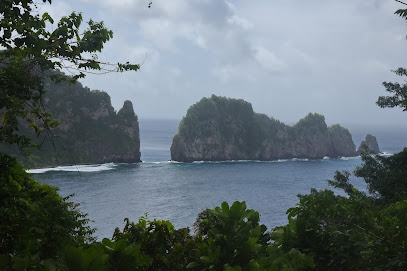
Essential places to dine
Tisa's Barefoot Bar
Discover Tisa's Barefoot Bar: A charming beachfront restaurant in Eastern District offering fresh seafood and tropical drinks amidst stunning ocean views.
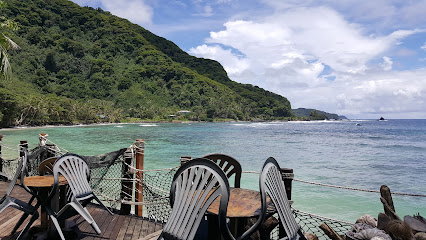
DDW Restaurant
Discover delectable local and international cuisine at DDW Restaurant in Utulei's breathtaking Eastern District.
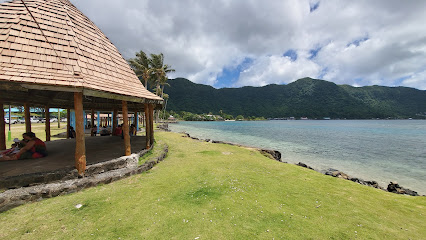
The Koko Bean Cafe
Discover authentic Samoan flavors at The Koko Bean Cafe – where every cup tells a story.
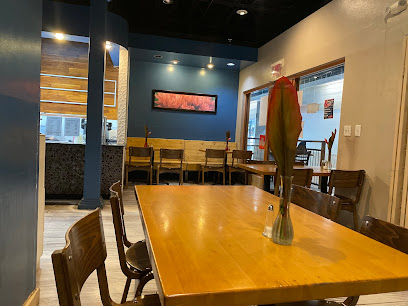
Cecilias Restaurant & Bar
Experience authentic Samoan cuisine at Cecilia's Restaurant & Bar in Pago Pago—where every meal tells a story.
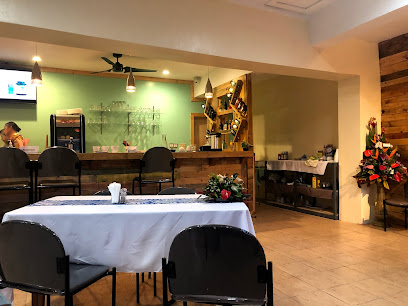
Milovales Burgers and Fish & Chips
Experience the best burgers and fish & chips in American Samoa at Milovales – where flavor meets island charm.
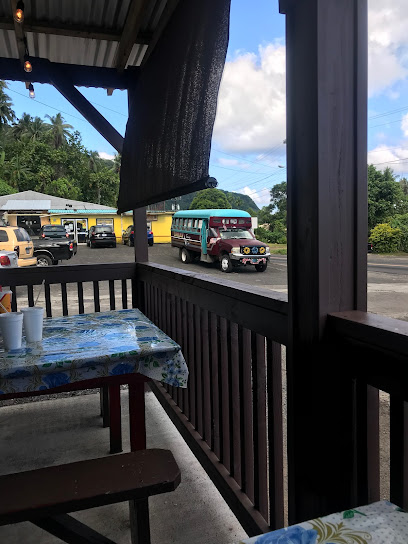
Oasis
Experience authentic Korean cuisine at Oasis in Tafuna—delightful dishes await in a warm and inviting setting.
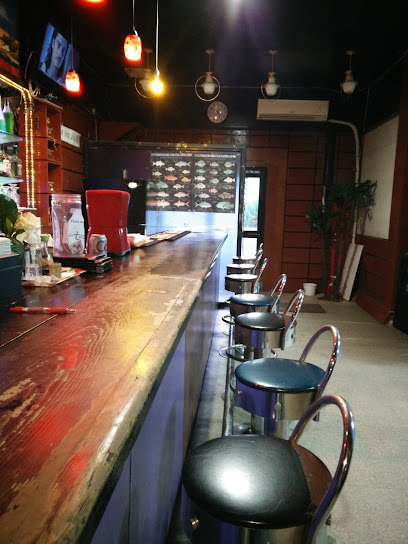
Dickies Diner
Experience authentic fast food flavors at Dickies Diner in Tafuna – where local cuisine meets classic American favorites.
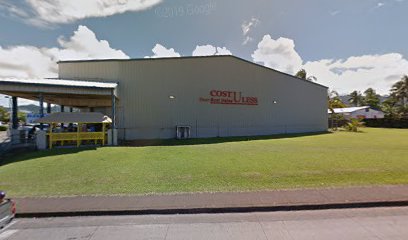
Manuia Restaurant
Savor the rich flavors of Korea at Manuia Restaurant—Tafuna's top destination for authentic Korean cuisine.
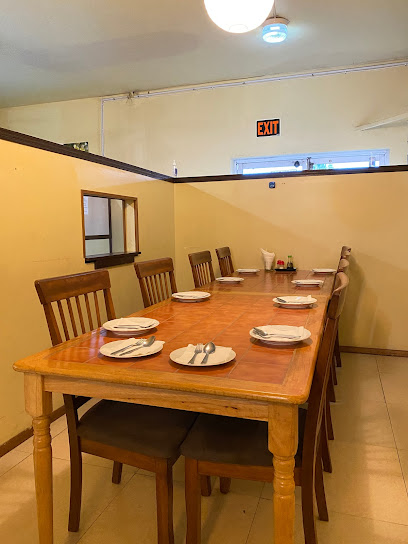
Nina’s Restaurant
Experience authentic local cuisine at Nina's Restaurant in Tafuna – where every meal tells a story.
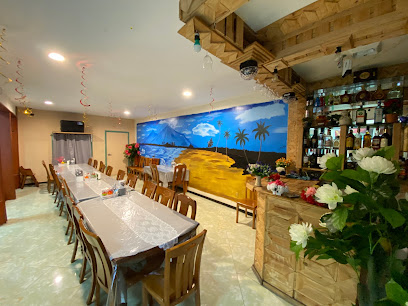
Mama's Kitchen
Experience authentic Samoan cuisine at Mama's Kitchen in Nu'uuli—where every dish tells a story.
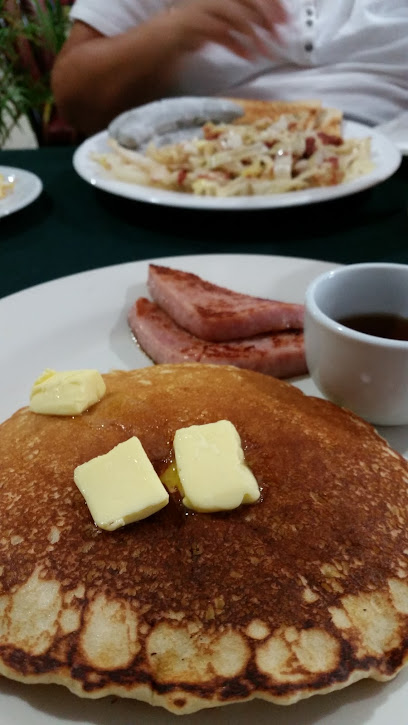
A&E Cafe
Discover authentic Samoan cuisine at A&E Cafe in Tafuna, where every dish tells a story of local flavors and hospitality.
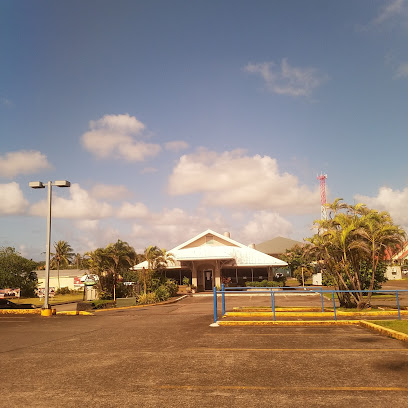
Goat Island Cafe
Experience the authentic taste of Samoa at Goat Island Cafe, where every dish is crafted with love and local ingredients.
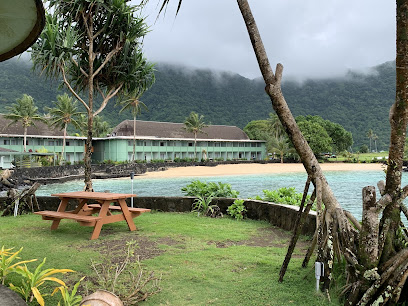
Emelio's Restaurant
Experience authentic Samoan cuisine at Emelio's Restaurant in Pago Pago – where every meal tells a story!
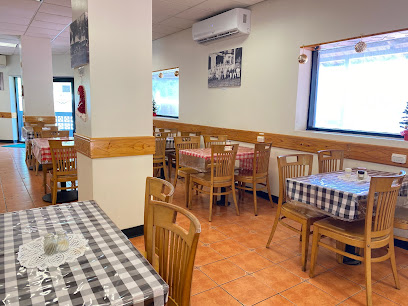
Sunny's Restaurant
Experience authentic island flavors at Sunny's Restaurant in Nu'uuli - a culinary gem known for its fresh ingredients and warm hospitality.
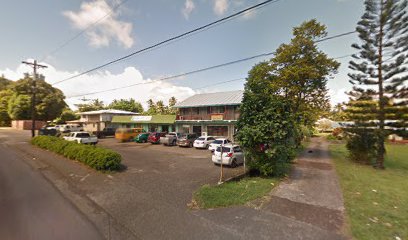
Moon Korean Restaurant
Discover authentic Korean flavors at Moon Korean Restaurant in Leloaloa - where every dish tells a story.
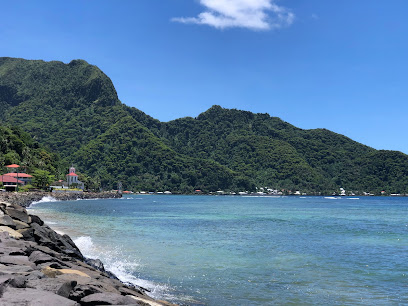
Markets, malls and hidden boutiques
Laufou Shopping Center
Explore Laufou Shopping Center: A vibrant shopping destination in Nu'uuli, where local culture meets retail therapy.
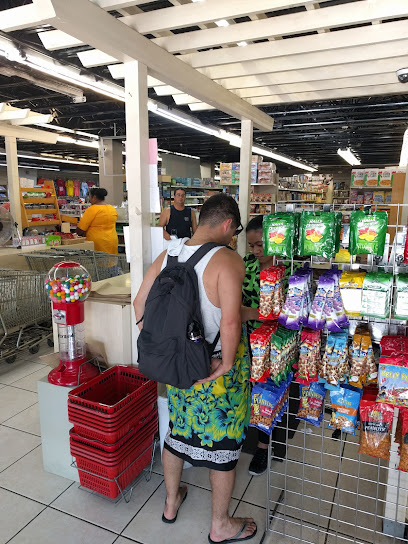
Manu'a Store
Explore Manu'a Store in Nu'uuli for unique home goods and authentic Samoan crafts, a perfect souvenir stop for every traveler.
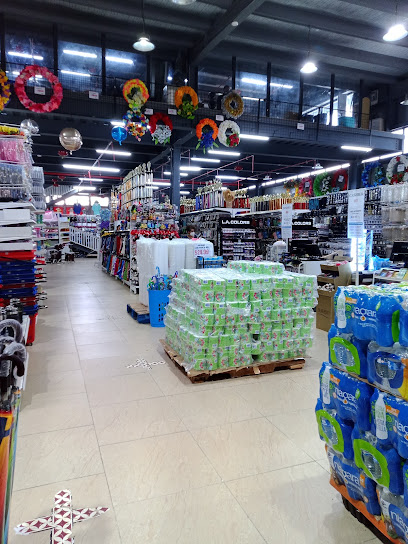
Happy Mart Bakery
Discover the sweet flavors of Happy Mart Bakery, a delightful stop in Nu'uuli for fresh pastries and local treats.
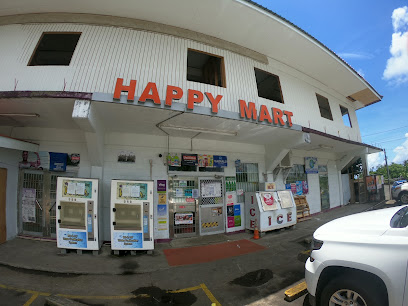
Ofu Beach
Discover the serenity of Ofu Beach, a tropical paradise in the Manu'a District, known for its stunning landscapes and vibrant marine life.
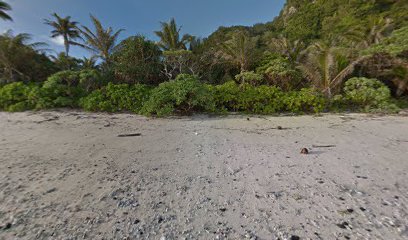
Pacific Mini Mart
Explore local cuisine and snacks at Pacific Mini Mart, your grocery hub in Tafuna, American Samoa, where convenience meets culture.
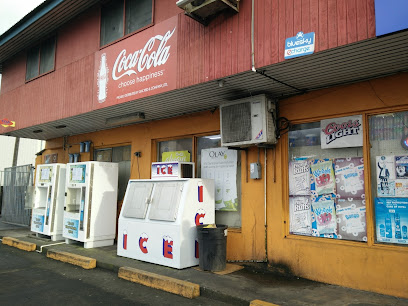
YSJ ltd
Discover the essence of Samoan culture through food at YSJ Ltd, a local grocery store in Tafuna offering fresh produce and local flavors.
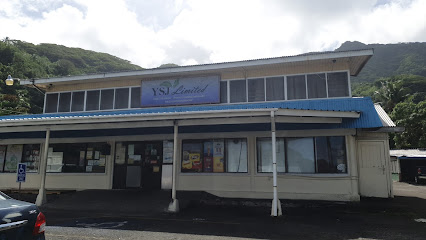
Amy's Gifts Shop
Explore the vibrant local craftsmanship and unique souvenirs at Amy's Gifts Shop in Aua's Eastern District.
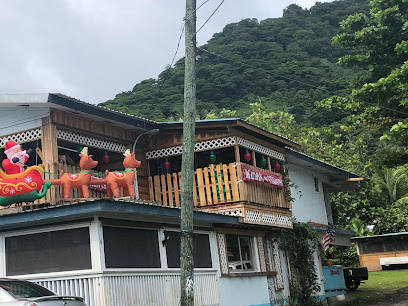
Kristopher Store
Discover the charm of Tafuna at Kristopher Store, your one-stop convenience for snacks, drinks, and local treasures in the heart of the Western District.
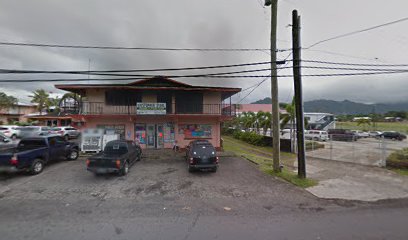
KOKOLAND STORE
Explore Kokoland Store in Tafuna for an authentic shopping experience filled with local flavors and essentials.
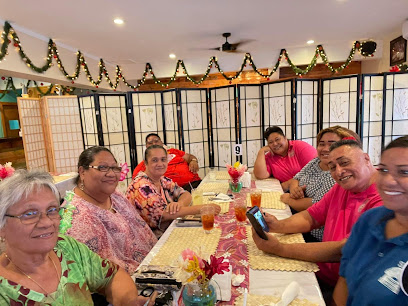
Tutuila Store
Explore the essentials at Tutuila Store, your convenient stop for groceries and local snacks in Leloaloa's vibrant Eastern District.

MU INC
Explore MU INC in Faga'alu – a local store filled with unique crafts, souvenirs, and a welcoming atmosphere that captures the spirit of the Eastern District.
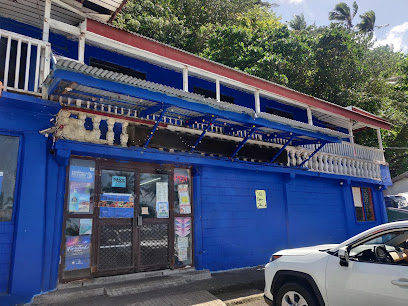
Setailoto Store
Discover the charm of Aunu'u at Setailoto Store, your convenient stop for local goods and essentials in the Eastern District.
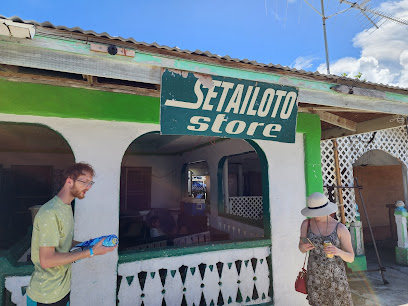
Iviaen Fashion and Design
Explore the vibrant world of textiles and design at Iviaen Fashion and Design, a premier sewing shop in Ili'ili's Western District.
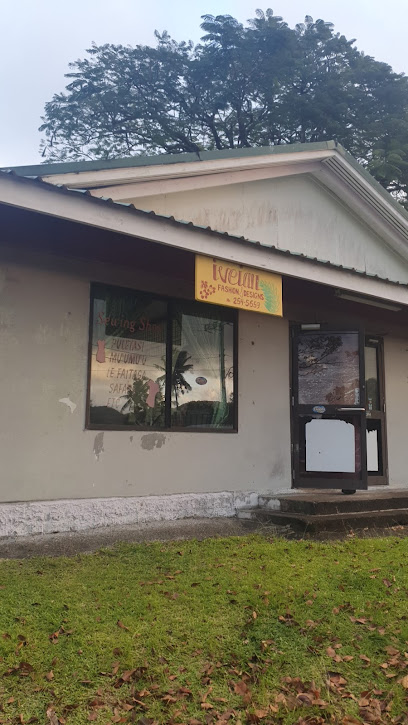
Paradise Gift
Explore Paradise Gift in Nu'uuli for exquisite handcrafted jewelry and unique local artisan treasures that capture the spirit of the island.
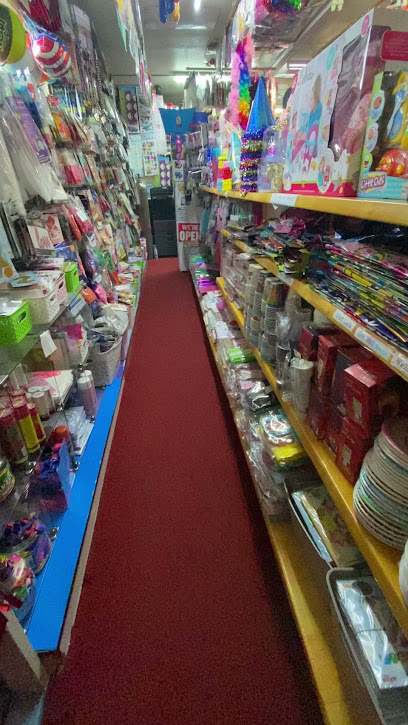
Ciao's Store
Explore the delightful offerings at Ciao's Store in Alofau, a grocery store showcasing local flavors and international treats.
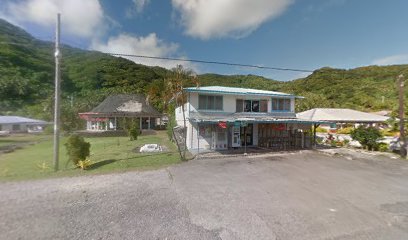
Essential bars & hidden hideouts
Tisa's Barefoot Bar
Experience the ultimate island dining at Tisa's Barefoot Bar, where fresh local flavors and stunning ocean views create unforgettable memories.
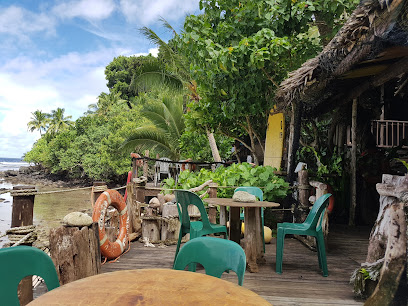
Cecilias Restaurant & Bar
Experience the vibrant flavors of Pago Pago at Cecilia's Restaurant & Bar, where local cuisine meets warm island hospitality.
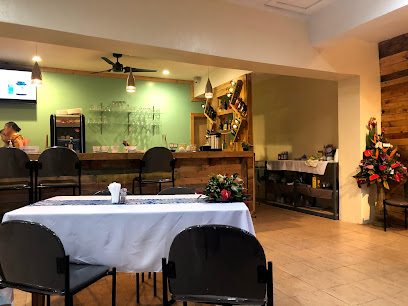
Oasis
Experience authentic Korean cuisine at Oasis in Tafuna, where every dish is a journey through the rich flavors of Korea.
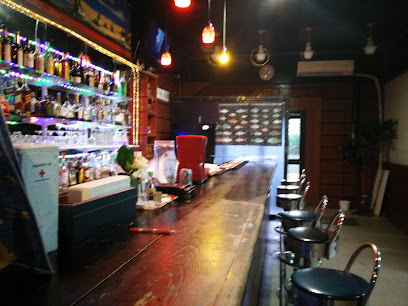
Flying Fox Gastropub
Experience the vibrant flavors of American Samoa at Flying Fox Gastropub, where gourmet cuisine meets a lively atmosphere in Pago Pago.
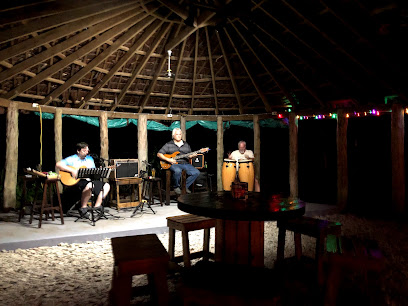
Paradise Bar & Grill
Experience vibrant nightlife and delectable drinks at Paradise Bar & Grill in Nu'uuli, the perfect spot for relaxation and fun.
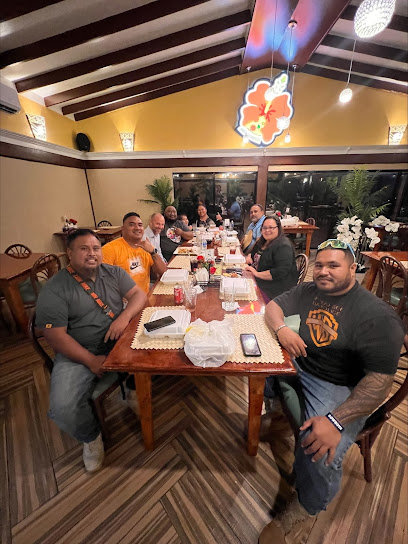
Manuia Restaurant
Experience authentic Korean flavors at Manuia Restaurant in Tafuna, where every dish tells a story of culinary tradition and delight.
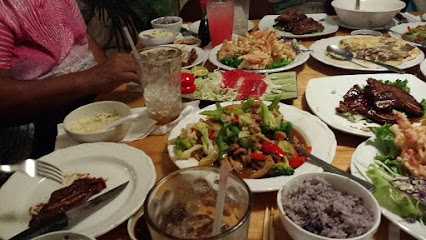
Nina’s Restaurant
Discover the flavors of Samoa at Nina’s Restaurant in Tafuna, where local cuisine meets warm hospitality in a vibrant setting.
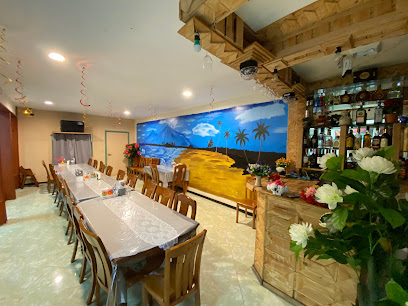
Asaga Inn
Discover the serene beauty of Asaga Inn, a family-run hotel in Manu'a District, perfect for immersing in the local culture and exploring stunning landscapes.

LuluLosa Beach Fales Bar & Grill
Experience the best of Samoan cuisine and breathtaking beach views at LuluLosa Beach Fales Bar & Grill, your perfect coastal getaway.
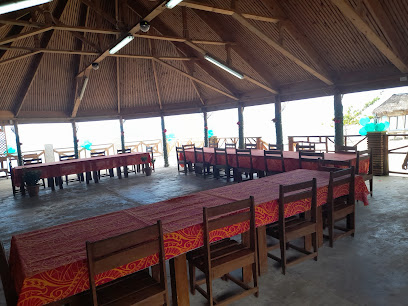
A&E Cafe
Discover the vibrant flavors of Tafuna at A&E Cafe, where local cuisine meets a welcoming atmosphere in a charming setting.
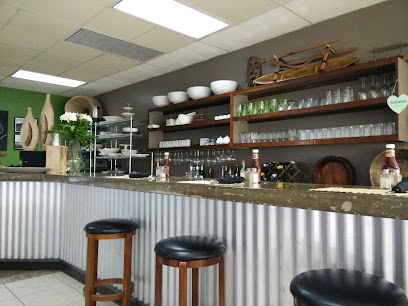
Goat Island Cafe
Discover the culinary delights of Goat Island Cafe, where fresh flavors and a warm atmosphere create unforgettable dining experiences in Utulei.
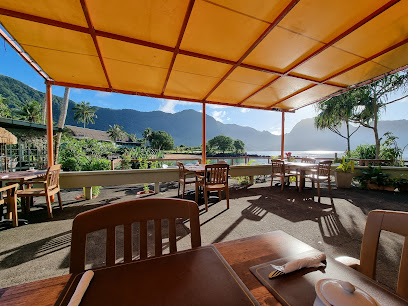
Cocktails On the Rocks
Discover the vibrant atmosphere and breathtaking ocean views at Cocktails On the Rocks, the perfect bar for relaxing and enjoying signature cocktails in Apia.
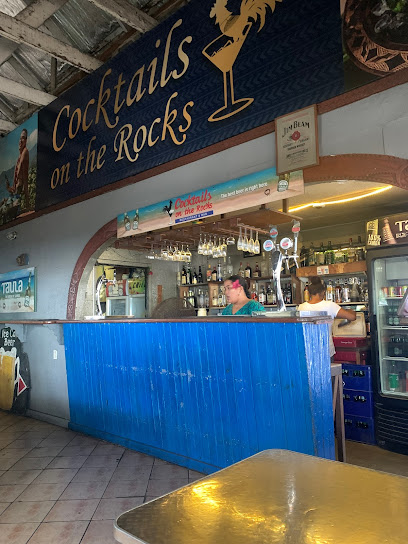
Moon Korean Restaurant
Experience authentic Korean cuisine in the heart of Leloaloa, where every dish is a celebration of flavor and tradition.
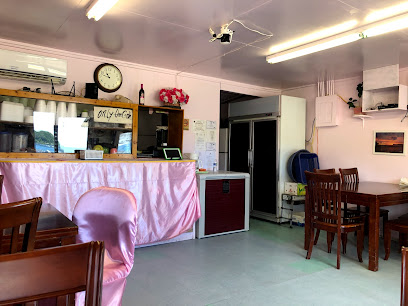
Faga'alu Restaurant
Experience authentic Vietnamese cuisine amidst the scenic beauty of Faga'alu at Faga'alu Restaurant, a culinary haven for food lovers.
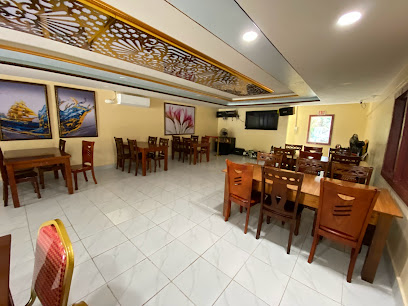
Food Bar
Discover the flavors of Tafuna at Food Bar, a fast food favorite offering delicious meals in a vibrant industrial setting.
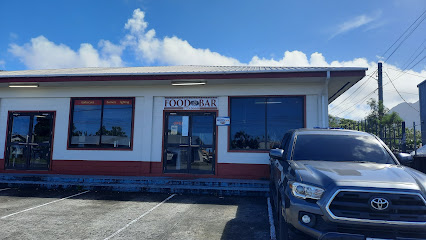
Local Phrases about Ofu Beach
-
- HelloTalofa
[tah-loh-fah] - GoodbyeFa
[fah] - YesIoe
[ee-oh-eh] - NoLeai
[leh-eye] - Please/You're welcomeFa'amalie
[fah-ah-mah-lee-eh] - Thank youFa'afetai
[fah-ah-feh-tah-ee] - Excuse me/SorryTulou
[too-loh-oo] - How are you?O a mai oe?
[oh-ah-my-oh-eh] - Fine. And you?Lelei. O a oe?
[leh-leh-ee. oh-ah-oh-eh] - Do you speak English?E te le fa'ailoa i le lea fale?
[eh-teh-leh-fah-ee-low-ah-ee-leh-leh-ah-fah-leh] - I don't understandE le mafai ona ou te fiafia
[eh-leh-mah-fah-ee-oh-nah-oh-teh-fee-ah-fee-ah]
- HelloTalofa
-
- I'd like to see the menu, pleaseE fia fesoasoani i le fa'ailoa, fa'amalie
[eh-fee-ah-feh-soh-ah-soh-ah-nee-ee-leh-fah-ah-ee-low-ah-fah-ah-mah-lee-eh] - I don't eat meatE le auai i la'u mea'ai
[eh-leh-ah-oo-eye-ee-lah-oo-meh-ah-eye] - Cheers!Manuia!
[mah-noo-ee-ah] - I would like to pay, pleaseE fia ia te totogi, fa'amalie
[eh-fee-ah-ee-ah-teh-toh-toh-gee-fah-ah-mah-lee-eh]
- I'd like to see the menu, pleaseE fia fesoasoani i le fa'ailoa, fa'amalie
-
- Help!Fa'amalie!
[fah-ah-mah-lee-eh] - Go away!Alu i le auala!
[ah-loo-ee-leh-ah-oo-ah-lah] - Call the Police!Fesili i le Fa'amasinoga!
[feh-see-lee-ee-leh-fah-ah-mah-see-noh-gah] - Call a doctor!Fesili i le foma'i!
[feh-see-lee-ee-leh-foh-mah-ee] - I'm lostO a ou taumafai
[oh-ah-oh-oo-tah-oo-mah-fah-ee] - I'm illO'u poto
[oh-oo-poh-toh]
- Help!Fa'amalie!
-
- I'd like to buy...E fia ia te fa'atau...
[eh-fee-ah-ee-ah-teh-fah-ah-tah-oo] - I'm just lookingO a ou va'ai
[oh-ah-oh-oo-vah-ah-ee] - How much is it?E leai se aga!
[eh-leh-eye-seh-ah-gah] - That's too expensiveO lelei lelei tele
[oh-leh-leh-ee-leh-ee-teh-leh] - Can you lower the price?E mafai ona ou te fa'amagalo le upu?
[eh-mah-fah-ee-oh-nah-oh-teh-fah-ah-mah-gah-loh-leh-oo-poo]
- I'd like to buy...E fia ia te fa'atau...
-
- What time is it?O le a le taimi?
[oh-leh-ah-leh-tah-ee-mee] - It's one o'clockO le tasi o le taimi
[oh-leh-tah-see-oh-leh-tah-ee-mee] - Half past (10)I le faaiu i le (ma'afulu)
[ee-leh-fah-ah-ee-oo-ee-leh-mah-ah-oo-foo-loo] - MorningTaeao
[tah-eh-ah-oh] - AfternoonAfiafi
[ah-fee-ah-fee] - EveningIli-ili
[ee-lee-ee-lee] - YesterdayAnanafi
[ah-nah-nah-fee] - TodayAso nei
[ah-soh-nay-ee] - TomorrowAso lava
[ah-soh-lah-vah] - 1Tasi
[tah-see] - 2Lua
[loo-ah] - 3Tolu
[toh-loo] - 4Fa
[fah] - 5Lima
[lee-mah] - 6Ono
[oh-noh] - 7Fitu
[fee-too] - 8Valu
[vah-loo] - 9Iva
[ee-vah] - 10Mafulu
[mah-foo-loo]
- What time is it?O le a le taimi?
-
- Where's a/the...?O fea le...
[oh-feh-ah-leh] - What's the address?O le tusi tuatusi?
[oh-leh-too-see-too-ah-too-see] - Can you show me (on the map)?E mafai ona ou te fa'ailoga (i le mapa)?
[eh-mah-fah-ee-oh-nah-oh-teh-fah-ah-ee-loh-ngah-ee-leh-mah-pah] - When's the next (bus)?O le a le taimi o le fa'asalalau?
[oh-leh-ah-leh-tah-ee-mee-oh-leh-fah-ah-sah-lah-lah-oo] - A ticket (to ....)Se tiketi (i ....)
[seh-tee-keh-tee-ee]
- Where's a/the...?O fea le...
History of Ofu Beach
-
Ofu Beach, part of the Manuʻa Islands in American Samoa, has a rich history dating back over a thousand years. The earliest settlers were Polynesians who navigated the vast Pacific Ocean using stars and ocean currents. These early inhabitants established thriving communities and built a culture deeply connected to the sea and land. Archaeological evidence, including ancient tools and pottery shards, points to a sophisticated society with advanced knowledge of agriculture, fishing, and navigation.
-
The first known European to reach the Manuʻa Islands, which include Ofu, was the Dutch explorer Jacob Roggeveen in 1722. However, significant contact with Europeans did not occur until the late 18th and early 19th centuries, when traders, missionaries, and explorers began to visit the islands more frequently. This period marked the beginning of substantial cultural changes as Western goods, ideas, and religions were introduced to the local population.
-
In the mid-19th century, Christian missionaries from the London Missionary Society arrived in the Manuʻa Islands, including Ofu. They played a significant role in transforming the cultural and religious landscape of the island. Many of the local Samoan traditions were blended with Christian beliefs, leading to a unique amalgamation of customs that continue to be observed today. Churches became central to community life, and the influence of Christianity remains strong on Ofu.
-
In 1900, the islands of American Samoa, including Ofu, were formally annexed by the United States. This annexation came after an agreement with the local chiefs and the U.S. Navy, which sought to establish a strategic presence in the Pacific. The annexation brought new governance structures and a closer relationship with the United States, which profoundly impacted the political and social development of Ofu and the surrounding islands.
-
During World War II, American Samoa played a strategic role in the Pacific Theater. While Ofu Beach was not a focal point of military activity, the presence of American forces in the region brought about significant changes. Infrastructure development, including airstrips and communication facilities, was initiated to support the war effort. The interaction between American soldiers and the local population also led to cultural exchanges and the introduction of new technologies and practices.
-
In 1988, the National Park of American Samoa was established, which included portions of Ofu Beach. The park was created to protect the unique natural and cultural resources of the islands. Ofu Beach, with its pristine coral reefs and diverse marine life, became a part of this conservation effort. The establishment of the park has helped preserve the environmental integrity of the region while promoting sustainable tourism and educating visitors about the rich history and culture of Ofu.
Ofu Beach Essentials
-
Ofu Beach is located on the island of Ofu in American Samoa. The nearest international airport is Pago Pago International Airport (PPG) on the island of Tutuila. From Pago Pago, you can take a domestic flight to Ofu Airport, which is operated by Samoa Airways. Flights are not daily, so it’s advisable to book in advance. Alternatively, you can take a boat charter from Tutuila to Ofu, but this option is less predictable and depends on weather conditions.
-
Once on Ofu Island, transportation options are limited. The island is small, so walking or biking are feasible ways to get around. Some accommodations may offer shuttle services or rental cars. For exploring nearby attractions, you can arrange for local guides who often provide transportation as part of their services.
-
The official currency in American Samoa is the US Dollar (USD). Credit cards are accepted in some accommodations and businesses, but it’s advisable to carry cash, especially for smaller purchases and in more remote areas. There are few ATMs on the island, so ensure you have enough cash before traveling to Ofu.
-
Ofu Beach and the surrounding areas are generally safe for tourists. However, standard safety precautions should be taken. Petty theft can occur, so keep an eye on your belongings. Avoid isolated areas at night and always be aware of your surroundings. There are no specific high-crime areas targeting tourists, but it's wise to stay vigilant.
-
In case of emergency, dial 911 for immediate assistance. Ofu has a small clinic that can handle minor medical issues, but for serious conditions, you may need to be transported to Tutuila. It is strongly recommended to have travel insurance that covers medical emergencies. Familiarize yourself with the location of the nearest medical facilities and always carry a basic first aid kit.
-
Fashion: Do wear modest swimwear at the beach and cover up when not swimming. Avoid overly revealing clothing in public areas. Religion: Do respect local customs and traditions. When visiting churches, dress conservatively and act respectfully. Public Transport: Do be courteous to drivers and other passengers. Public transport options are limited, so plan accordingly. Greetings: Do greet people with a smile and a polite 'Talofa' (hello). A handshake is also common. Eating & Drinking: Do try local dishes and accept food graciously when offered. Don’t refuse hospitality, as it may be considered impolite.
-
To experience Ofu Beach like a local, engage with the community and participate in local events and traditions. Visit the local markets to purchase fresh produce and handmade crafts. Try the traditional Samoan dishes, and don’t miss out on the opportunity to learn about the island’s history and culture from the residents. Snorkeling at the Ofu Beach coral reefs is a must for its vibrant marine life. Respect the natural environment by not littering and following local conservation guidelines.
Nearby Cities to Ofu Beach
-
Things To Do in Fagatogo
-
Things To Do in Pago Pago
-
Things To Do in Tafuna
-
Things To Do in Leone
-
Things To Do in Lalomanu
-
Things To Do in Apia
-
Things To Do in Mulifanua
-
Things To Do in Salelologa
-
Things To Do in Fagamalo
-
Things To Do in Savai'i
-
Things To Do in Manase
-
Things To Do in Asau
-
Things To Do in Falealupo
-
Things To Do in Ha'ano
-
Things To Do in Foa





